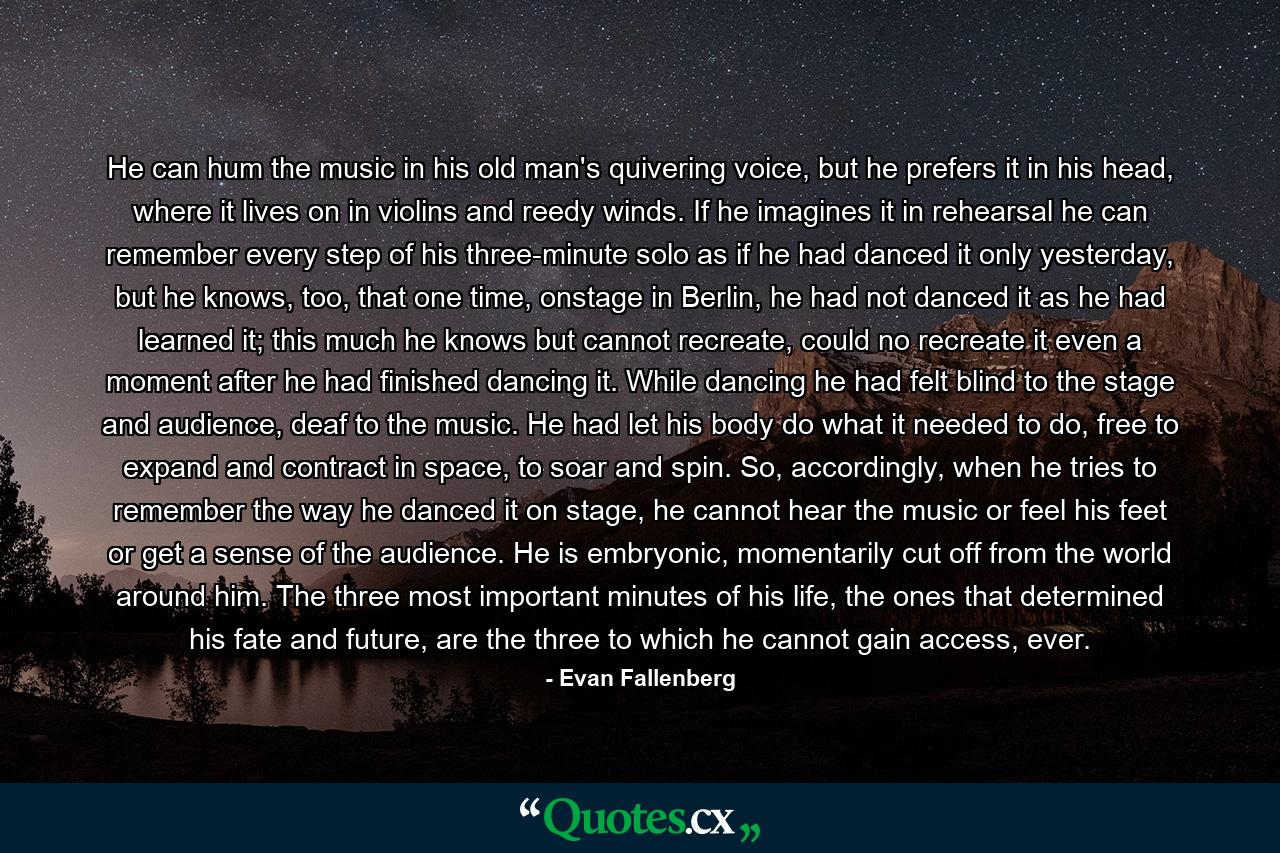He can hum the music in his old man’s quivering voice, but he prefers it in his head, where it lives on in violins and reedy winds. If he imagines it in rehearsal he can remember every step of his three-minute solo as if he had danced it only yesterday, but he knows, too, that one time, onstage in Berlin, he had not danced it as he had learned it; this much he knows but cannot recreate, could no recreate it even a moment after he had finished dancing it. While dancing he had felt blind to the stage and audience, deaf to the music. He had let his body do what it needed to do, free to expand and contract in space, to soar and spin. So, accordingly, when he tries to remember the way he danced it on stage, he cannot hear the music or feel his feet or get a sense of the audience. He is embryonic, momentarily cut off from the world around him. The three most important minutes of his life, the ones that determined his fate and future, are the three to which he cannot gain access, ever.
